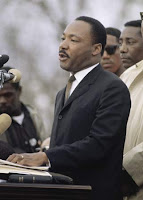 February is Black History Month here in the States, and I wanted to post this article I originally wrote for my regular column on MensFlair.com.
February is Black History Month here in the States, and I wanted to post this article I originally wrote for my regular column on MensFlair.com.
Earlier this month, we celebrated Martin Luther King Day, a holiday filled with both pragmatic and intangible significance. Dr. King is without a doubt one of the most revered figures in modern American history.
More than most public figures of the 20th Century, King is tightly intertwined with the times in which he lived. He has become a legend, but still a very human one. The people who knew him are still alive and can still tell their stories of this remarkable gentleman.
I chose Dr. King as an icon of classic style because how he lived his life and the way he presented himself every day quite literally changed how The United States, and much of the world, viewed African Americans. When I think of Martin Luther King, I see someone who possessed incredible inner strength and a drive to make a tangible mark on the world.
Leaders and politicians had to deal with him and in so doing often saw themselves in the harsh light of public examination. He was a man who through sheer force of personality demanded respect and attention. His personality was striking and when I think of how he looked, I always see him in a suit.
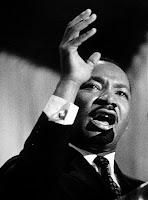
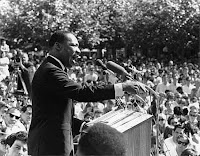
It was usually a simple but elegant suit; dark, sober and professional. It was a Sunday suit; fitting of course as he was a preacher. But as he was also a civil rights soldier during a time in my country’s history when bigotry was literally the law.
So King’s suit was also his armor; distinguishing himself as a gentleman, a scholar and a leader. He also knew that every time he stepped out in public, he was a marked man. Yet he never shrank from his duty. When we see him leading marches, giving speeching or organizing his landmark nonviolent protests, King is always distinguished, always the example of what leading a worthwhile life really means.
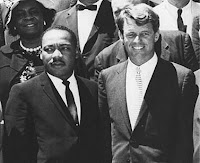
As with his contemporary, Bobby Kennedy, King has become a somewhat remote and perfected image. But the dangers faced by Dr. King and those around him were very real and very personal. Every day he had to get up and accept that his work could – and probably would – lead to his death. Yet that kind of pressure seemed to embolden him and add even more purpose to his mission.
In addition to the civil rights struggle, King fought another type of war. It was the war of perception. Dr. King presented black America in a way that tore down the flimsy veil of prejudice. Step by step his actions and personality reshaped the image of what made someone an American and a human.
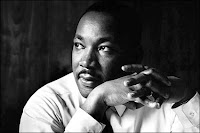
King understood the role of media and of perception. He made a point to always be well turned out, eloquent, knowledgeable and gentlemanly. Because this was his true personality, it was not hard to do. By presenting a glaring counter argument to bigoted preconceptions, in the form of an accomplished and elegant African American leader, King opened a new front in the war for equality.
By being perpetually well dressed, King’s image, as well as his words, presented an unassailable message of strength, confidence, leadership and intelligence.
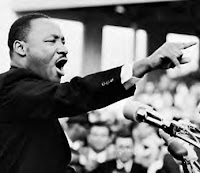
While clothing does not in and of itself change the world, part of Dr. King’s legacy will always be the image of a polished leader and brilliant orator. King’s choice of clothing extended his reach and defined a leader.